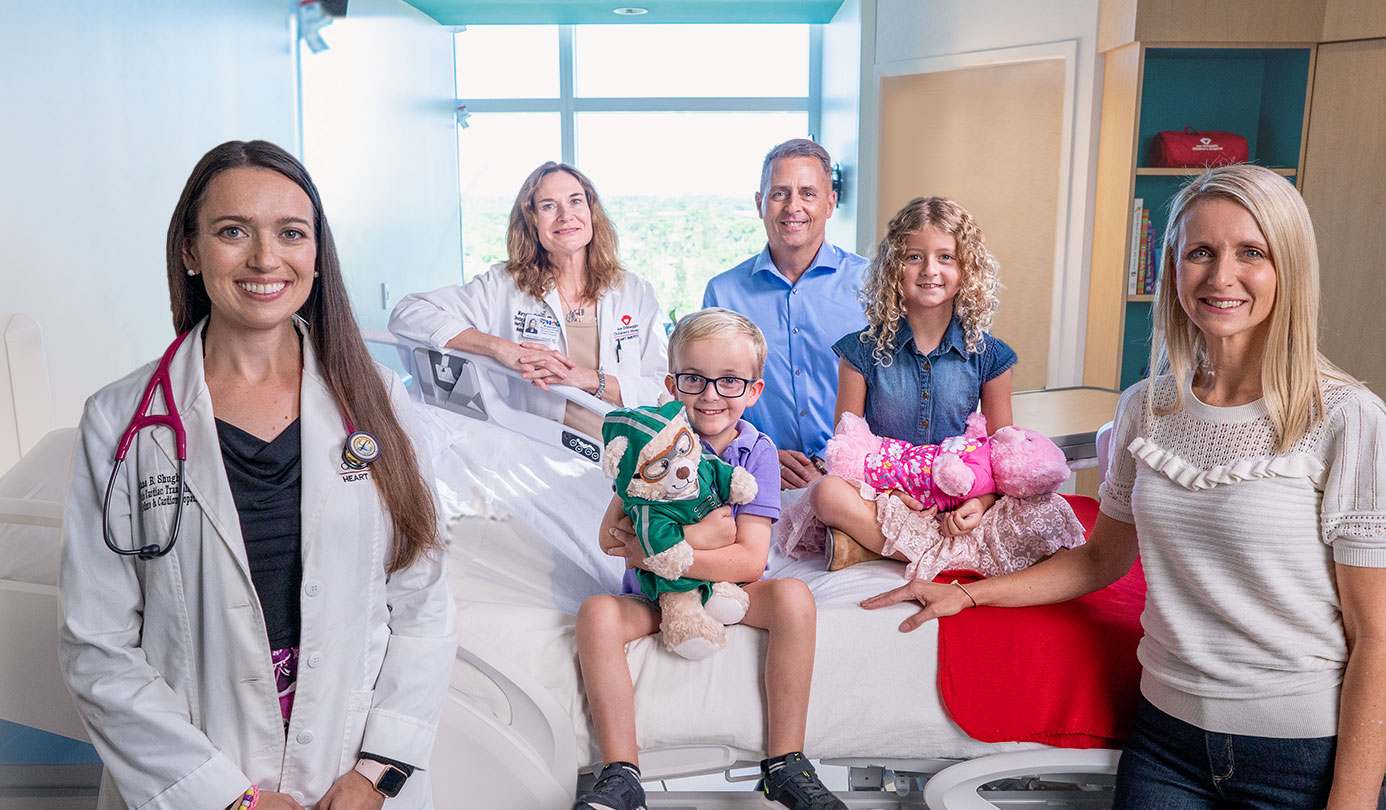Brachial Plexus Injuries
We are one of the few places in South Florida offering complete brachial plexus injury care
Learn more about our pediatric orthopedic services
954-265-6300The brachial plexus is a bundle of nerves under the collarbone supporting movement and sensation in the shoulder, arm and hand. Injuries occur when the nerves get stretched, such as when a baby is pulled by their arm during childbirth. These issues, known as brachial plexus palsy, cause muscle weakness, joint tightness or unusual positioning.
Experts at Joe DiMaggio Children’s Hospital offer uncommon expertise. We are among a small number of programs nationwide with a team of doctors specializing in brachial plexus palsy. We deliver research-based care that offers the best chances for healing.
Pediatric Brachial Plexus Palsy Services
We offer comprehensive brachial plexus palsy care, including advanced imaging, nonsurgical therapies and surgery. Many children make near-full recoveries. For more advanced injuries, our services optimize functioning and reduce discomfort.
Evaluation
We often meet new patients and their families at Memorial Hospital shortly after their baby’s birth. We take time to explain what is happening and how we can help. In your child’s first months of life, we see them in our clinic, where we do a more extensive evaluation. This information lets us determine the next steps of your child’s care.
Conditions and Treatments:
Brachial plexus injuries we treat include:
- Neuropraxia: Mild nerve injury that’s due to unnatural stretching from a forceful downward pull
- Neuroma: Scar tissue buildup on a nerve that causes pain
- Rupture: Partial or complete tear of nerve tissue
- Avulsion: Nerve roots become entirely separated from the spinal cord
Brachial plexus injuries that do not heal as expected typically require surgery. In some children, we carry out multiple procedures in a single surgery. With others, we spread surgeries out over time to allow healing and development.
Types of brachial plexus surgery we offer include:
- Osteotomy: Surgeons place tiny cuts in specific areas of bone to improve shoulder movement. This option may improve range of motion in older children.
- Nerve grafting or transfer: We replace damaged nerves with healthy tissue, enabling signals from the brain that prompt healing.
- Nerve repair: We may be able to repair torn nerve tissue by reconnecting tiny tissue fibers with the help of a surgical microscope.
- Tendon transfer: We transfer healthy tendon tissue from another body area to take over the work of a paralyzed tendon.
- Muscle transfer: Surgeons replace nonfunctioning muscles with healthy ones from other body areas. This procedure, combined with a nerve transfer, may restore movement in previously paralyzed areas.
Some brachial plexus injuries heal on their own. We play an active role in this type of recovery with monitoring. It involves regular evaluations and imaging to assess progress.
We discuss whether surgery can help and what to expect if recovery isn’t advancing as expected.
Highlights of our program include:
- Multidisciplinary approach: Brachial plexus injury care at Joe DiMaggio Children’s Hospital is a team effort. Orthopedists work alongside neurologists, neuroradiologists (nerve imaging doctors) and physical medicine and rehabilitation specialists. We coordinate big and small details that help your child achieve the best possible results. Meet our team.
- Personalized treatments: We anticipate your child’s needs and arrange services to meet them. Our conservative approach often includes watchful waiting with imaging and observation in the hopes the injury heals on its own. We also quickly detect injuries that would benefit from surgery, enabling your child to receive timely care.
- Surgical excellence: Brachial plexus surgery uses a variety of techniques to optimize sensation in the upper limbs. Few pediatric orthopedic surgeons in South Florida are familiar with these complex procedures, but we perform them frequently. Multiple surgeons sometimes operate together to carry out treatment plans.
Learn more about our pediatric orthopedic services
954-265-6300The brachial plexus is a bundle of nerves under the collarbone supporting movement and sensation in the shoulder, arm and hand. Injuries occur when the nerves get stretched, such as when a baby is pulled by their arm during childbirth. These issues, known as brachial plexus palsy, cause muscle weakness, joint tightness or unusual positioning.




